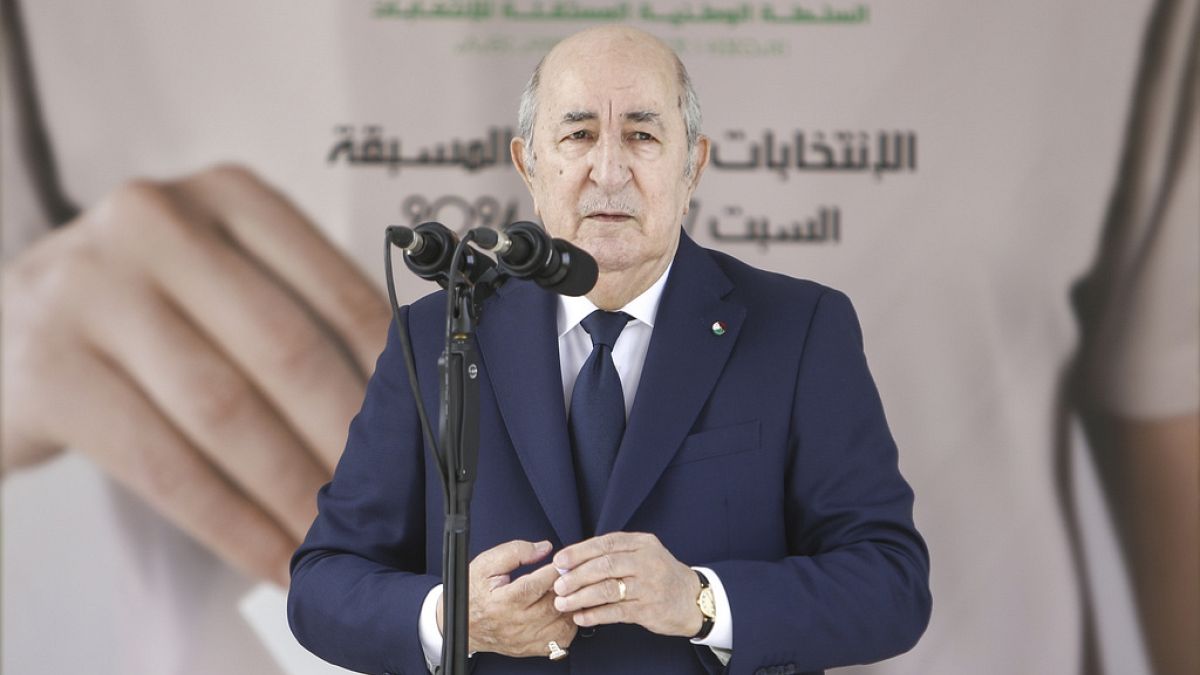In a country where elections have historically been carefully controlled, the unexpected questions about irregularities shocked Algerians who had anticipated a straightforward victory for Tebboune.
After winning Algeria’s election, President Abdelmadjid Tebboune joined his two opponents in criticising the election authority for announcing results that contradicted earlier turnout figures and local tallies.
These claims of irregularities overshadow what initially seemed like a landslide reelection for the 78-year-old president.
Algeria’s National Independent Election Authority (ANIE) on Sunday announced 74-year-old Tebboune had won 94.7% of Saturday’s vote – far outpacing his challengers Islamist Abdelali Hassani Cherif, who received 3.2% and socialist Youcef Aouchiche who garnered 2.2%.
Hours later, Tebboune and his opponents issued a joint statement accusing the top election official of announcing contradictory results and questioning the reporting of the election outcomes.
Officials did not explain why they initially announced a 48% voter turnout when the polls closed. Before all three candidates questioned the discrepancy, both of Tebboune’s challengers had already raised concerns, citing their own tallies.
It’s unclear what will happen next after all three candidates cast doubt on the irregularities and whether this will lead to legal challenges or delay the final certification of the results.
Election officials on Sunday reported 5.6 million of the country’s roughly 24 million voters cast their ballots. Such high abstention rates, which remain unofficial, would surpass the 2019 presidential election when 39.9% of the electorate participated.
Abstention ‘a lesson in democracy’ against elites
Tebboune, considered the military’s candidate, won his first term in 2019 during a widely boycotted election; crowds sacked voting stations and police broke up demonstrations.
The leader’s runaway victory has fuelled scepticism about the election results as well as criticism from pro-democracy activists. They have long seen elections as tools that the country’s political elites have used to give off an appearance of popular support.
Many said the loudest message from the election came from those who chose to abstain out of fear that the election would only entrench and legitimise “le pouvoir” — a term used to describe the military-backed elites who run the country.
“The vast majority of the Algerian people have just given ‘le pouvoir’ a lesson in democracy,” said Nassira Amour, a teacher and leading figure from Algeria’s pro-democracy movement.
“The majority did not vote … This electoral masquerade is a victory for the Hirak,” Amour added, referencing the pro-democracy movement that swept the country in 2019.
In 2019, Hirak protestors flooded the streets of Algerian cities after then-President Abdelaziz Bouteflika indicated he intended to run for a fifth term. The military scuppered these plans, with Bouteflika resigning shortly thereafter.
The interim government that replaced him heeded calls from military leaders to hold elections later that year. This angered protestors who saw expediting elections as a way to calm discontent and sidestep demands for civilian-led, non-military rule.
Amnesty International last week condemned Algeria’s “brutal crackdown on human rights including the rights to freedom of expression, peaceful assembly and association in the run up to the country’s presidential elections.”

